State announces $30 million for Alabama road, bridge work
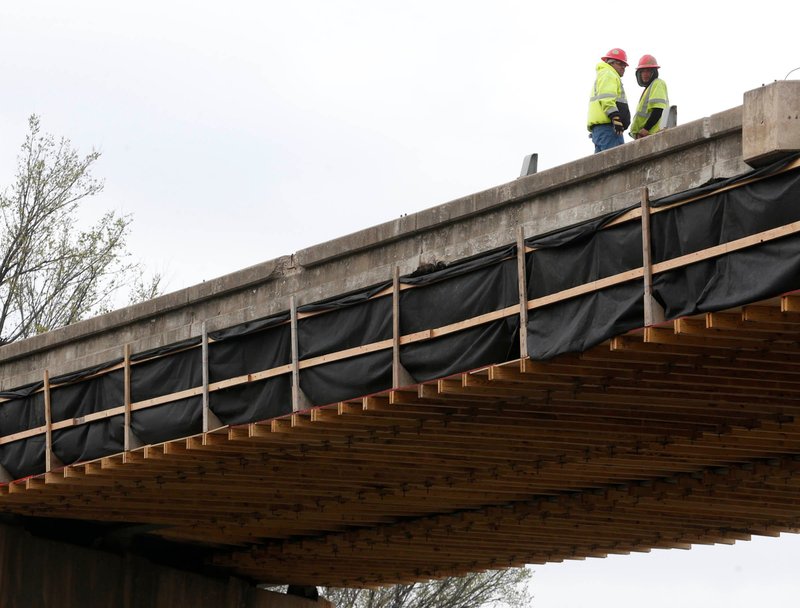
The state says $30 million is available for cities and counties around Alabama to use on road and bridge projects. The money announced Thursday is coming from a 10 cent-a-gallon increase in the state gas tax that lawmakers passed this year at the urging of Gov. Kay Ivey. Twenty-eight projects were selected in all for a total of $30.1 million in funding from the state. The largest amounts of $2 million each are going to the cities of Saraland, Springville and Houston County. Some local governments are providing about $9.5 million total to assist with the work. A statement from Ivey’s office says every citizen will see benefits from infrastructure spending. The law passed earlier this year requires at least $30 million annually for local governments under the tax hike. Republished with the permission of the Associated Press.
Jim Ziegler asks TPO to table bridge decision pending John Cooper/ALDOT answers
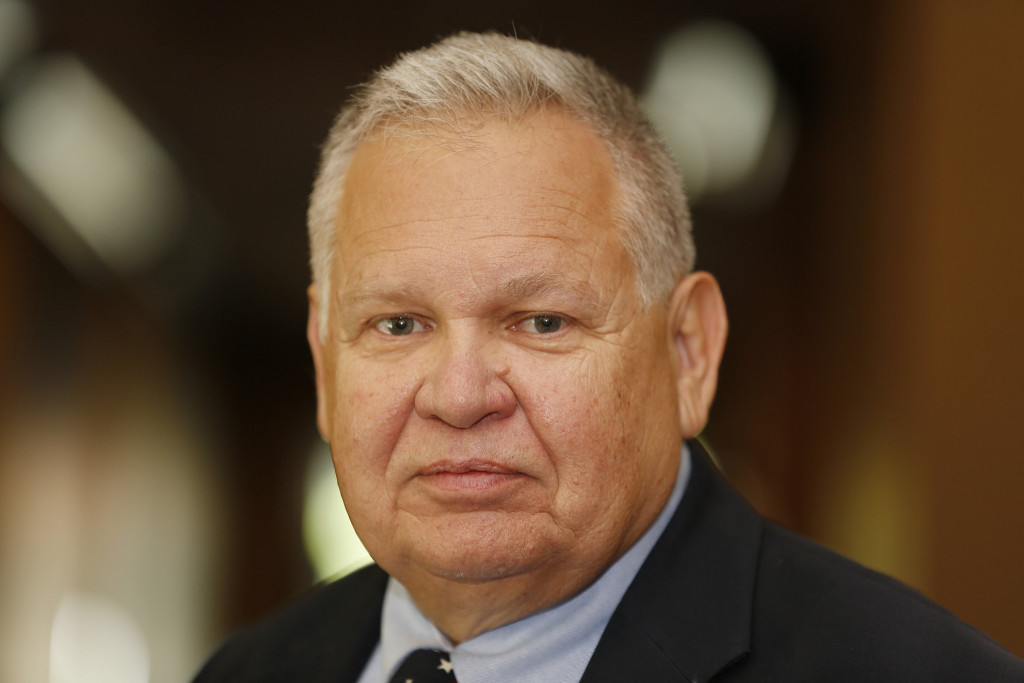
Alabama State Auditor Jim Zeigler is back at it: trying to protect taxpayers from wasteful spending. Just over two months ago, Ziegler reached out to the Alabama Department of Transportation (ALDOT) trying to find answers about a proposed bridge between Orange Beach and Gulf Shores, AL. As Alabama Today previously reported, in a letter dated April 17, sent a letter to John Cooper, Transportation Director at ALDOT and William Patty, ALDOT Chief Counsel, inquiring about the need for an $87 million state-funded bridge project in Baldwin County — which would be a second bridge to Orange Beach. Zeigler requested the following documents from the ALDOT: Copies of any and all studies that demonstrated a need for a bridge over the Intercoastal waterway Any and all documents that show a change in the need for the Intercoastal bridge since the determination in 2016 that the bridge was unnecessary Any and all analyses to support spending $30-$87 million in state funds in light of the pressing infrastructure needs throughout the state Any and all documents that resulted in the range of costs projected ($30 to $87 million) Documents that show cost overruns on current and recent ALDOT projects According to the court filing from the bridge company, they agreed to widen their bridge at no additional cost to Please provide any and all documents that address why the option of widening the original bridge is not being utilized. John Cooper and ALDOT have yet to respond to Ziegler’s request. Which is why on Tuesday, he sent a letter to the Florida/Alabama Transportation Planning Organization (TPO) making a formal request that they delay action on an agenda item, Resolution FL-AL 18-12, during a meeting they have scheduled Wednesday. This Resolution would update the 2040 Florida-Alabama Transportation long range plan to include the controversial bridge. The report notes that, in April 11, 2018 the “TPO tabled action on: Gulf Coast Intracoastal Waterway Bridge from SR 180 (Canal Road) to Foley Beach Express; Wolf Bay Bridge and Connecting Roads from SR 180 (Canal Road) to CR 20. TPO amended the LRTP to add two projects: I-10 from US 29 to the Alabama State Line; Nine Mile Road from in the Vicinity of Beulah Road to East of I-10.” The decision to table action was a direct result of local residents speaking out to express their concerns. Joe Emmerson who leads the group opposed to the “Bridge to Nowhere” and other local residents attended the meeting and expressed their concerns over both the cost and need for the bridge as well as the effects it would have on existing property owners in the area. The report for Wednesday’s cites two public hearings on the project (one being the last TPO meeting) although in sworn testimony DOT officials expressly denied any public hearings have been held and residents have expressly spoken out against the fact they have not had the opportunity to have their voices heard. The resolution in question is one concerning the controversial Gulf Coast Intracoastal Waterway Bridge from SR 180 (Canal Road) to Foley Beach Express. Read Zeigler’s letter in full below: State of Alabama June 12, 2018 Mr. Gary Kramer Ms. Tiffany Bates Florida/Alabama Transportation Planning Organization Request that you postpone any positive action on Item F.1. (1) As the State Auditor for the State of Alabama, I hereby request that you delay any positive action on the first half of Resolution FL-AL 18-12 (Item F. 1, enclosure A) on your June 13, 2018 agenda. This is the Gulf Coast Intracoastal Waterway Bridge from SR 180 (Canal Road) to Foley Beach Express. The reason is that I have formally requested from the Alabama Department of Transportation vital public documents needed to address issues about this proposed project. ALDOT has not yet provided the documents as yet. If you will postpone any positive action on F.1 (1), I will notify you as soon the needed documents are provided. I will also provide you my independent review of this project. F. 1. Consideration of Resolution FL-AL 18-12 to amend the Florida-Alabama 2040 Long Range Transportation Plan for Two projects: (1) Gulf Coast Intracoastal Waterway Bridge from SR 180 (Canal Road) to Foley Beach Express Thank you. Jim Zeigler Alabama State Auditor 600 Dexter Ave., S-101 Montgomery, AL 36130 334-242-7010 Alabama Today has reached out to Austin Mount the Executive Director of the TPO to confirm they are in receipt of the letter, to ask if it has been forwarded to members of the commission and to seek comment and will update this story upon hearing back from them. He responded back Tuesday evening that the resolution item will remain on the agenda. Below is his full response: “We are in receipt of the request however the item still sits on the agenda and will be discussed tomorrow. ALDOT is heavily in support of the bridge and the TPO board will be informed of all materials received before they make a decision to deny/approve/table the bridge matter.” *6:28 p.m. CT: this article has been updated to include a response from TPO.
Proposed new Baldwin County beach bridge spurs lawsuits, public activism
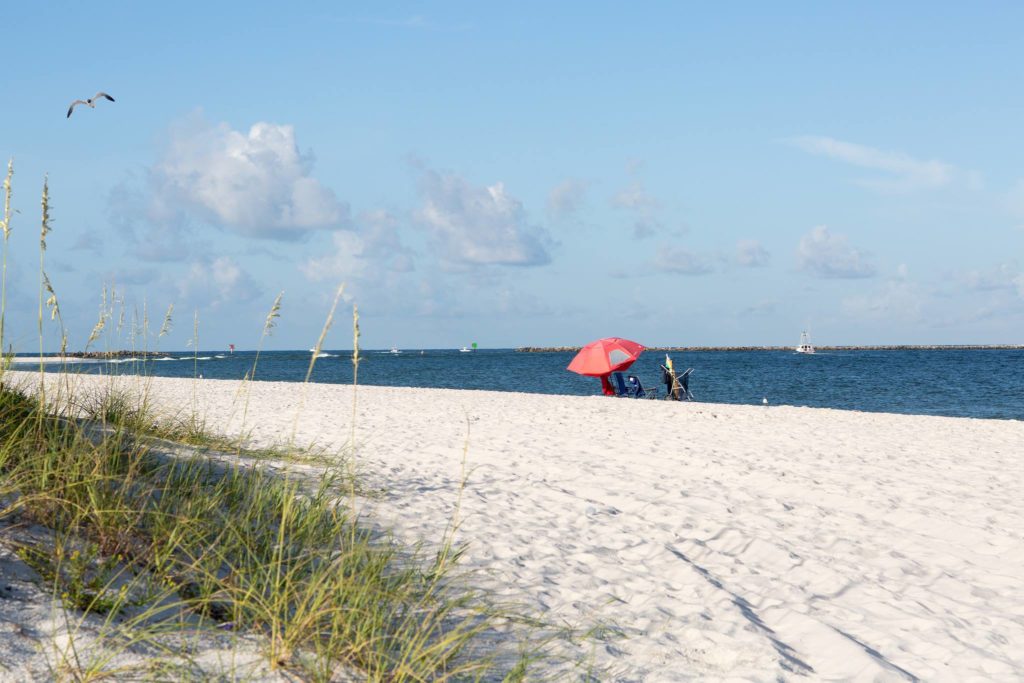
The battle over bridges continues in Baldwin County where an $87 million state-funded bridge project is being blamed for wasting taxpayer funds and diverting much-needed state resources away from other critical state infrastructure projects. Under fire is Director John Cooper of the Alabama Department of Transportation (ALDOT) for his plans to build a new bridge connecting the Foley Beach Express to Canal Road in Orange Beach. On one side of the argument is the Baldwin County Bridge Company (BCBC) a subsidiary of American Roads LLC, the company that was brought in as a private-public partnership to build and operate the Foley Beach Express — a toll bridge as an alternative to Highway 59. The toll was intended to save travelers time and money. Rather than sitting in congested traffic and waiting for over 25 stop lights on the highway, the Foley Beach Express allows drivers to cruise to the beach, all the while bringing in much-needed funds for local infrastructure improvement. In support of the bridge, “We have to be able to move traffic., we’ve got to be able to evacuate and we have to be able to grow,” Orange Beach Mayor Tony Kennon told AL.com. “One bridge with a toll does not help us do that.” Kennon has long been an active critic of the toll road, going on the record hoping the owners previous financial troubles would mean the city could buy the bridge at a low cost. Last summer, to help satisfy frustrations American Roads unveiled their “Beach Express, GO!” initiative, which included lowering tolls throughout the summer, and even “lifting” the tolls during peak congestion times around concerts and widely attended events as part of their first steps in a comprehensive plan to work with the state and community to provide the safest and most efficient service to those headed to or from the beach this summer and beyond. And after a year of debate, local officials last August settled on widening the existing Foley Beach Express bridge with a third lane that will be reversible depending on traffic needs rather than building a third bridge to help ease congestion. But ultimately negotiations broke down when ALDOT requested that the BCBC give the city of Orange Beach the bridge at no cost. Thus, plans for the additional bridge resurfaced. Which is why the BCBC has filed a complaint against the State of Alabama. Filed on April 2, the BCBC is objecting the ALDOT’S petition to “unjustifiably” take BCBC’s property “by eminent domain.” Outside push-back Some Baldwin County residents are pushing back against the bridge as well. A 600-plus member Facebook group dubbed the Bridge2Nowhere says it has opposed the project since it was first suggested in 2015. The group’s leader, a 25 year resident of the Gulf Shores/Orange Beach area, Joseph Emerson believes people are being misled to think the bridge is a necessary solution to the traffic congestion. The group is actively opposed to the use of eminent domain to take land and properties the state will need for this bridge. Emerson is active on Facebook debunking rumors and myths about the additional bridge and pushing back against DOT and the Mayor’s justifications. “I keep seeing interviews of people saying, ‘We need a bridge because the traffic is so bad.’ PEOPLE! THINK!,” Emerson posted. “Without a north/south access to the beach… traffic will be compounded not alleviated. This bridge project is not a solution!” ALDOT has not responded to Alabama Today for comment.
The key to Alabama’s economic future: Infrastructure investments
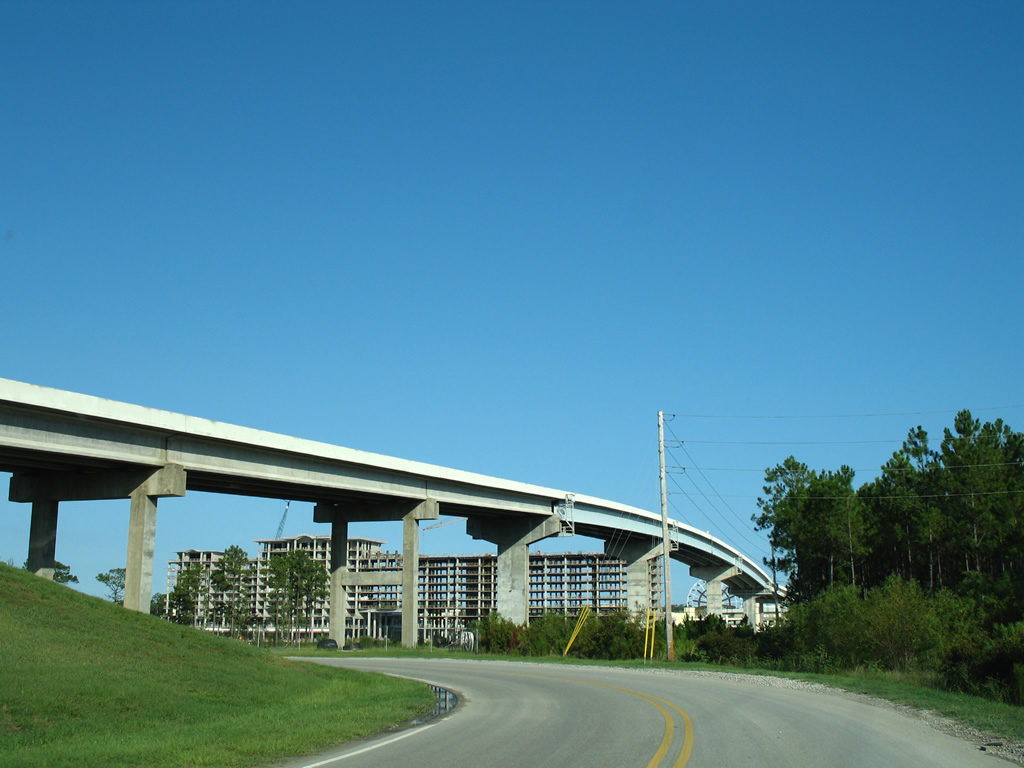
Sometimes the best way to look at the future is to study the past. In Alabama, we know that after Thomas Jefferson completed the Louisiana Purchase, he immediately authorized infrastructure to connect the new lands with the east. From Postal roads to ports and railroads, Alabama grew and prospered with each new infrastructure project. Today, if Alabama is going to remain competitive — make no mistake, other states are actively reducing burdensome regulations and facilitating new infrastructure projects to continue to attract jobs and investment — then Alabama has to get to work. One thing history has shown us is that when the good people of Alabama roll up their sleeves and get to work, we can compete and we can compete and win in a global market. Today our state needs to focus on several new and critical infrastructure projects that require our attention This is a nationwide issue of critical importance; the United States has an estimated $5.2 trillion (with a T) backlog of unmet infrastructure needs. It’s not a matter of if we need new infrastructure investment, but how we do it most efficiently without saddling taxpayers with massive costs. Many of these answers lie in the public-private partnership model, in which the government partners with private businesses to build, operate and maintain critical infrastructure. It’s a model that recognizes the efficiencies and speed with which the private sector can get things done, while meeting and delivering all requirements for the state and federal governments. Projects that languish in underfunded bureaucracies can come to life when these public-private partnerships are used. And most importantly, the dollars necessary to fund critical transportation projects come from the private sector, not the taxpayer. Alabama is seeing a boom along its southern coast, with cities like Orange Beach and Gulf Shores experiencing massive tourism-fueled growth. This is great news for the region and for our state as a whole, but with growth comes congestion. Until a privately owned toll bridge was constructed, visitors and locals only had one way to cross the Intracoastal Waterway to get to the Gulf: the I-59 bridge. But that private toll bridge, the Beach Express, gives visitors an option to avoid the congestion of I-59 and pay a small toll for the right to cross quickly. The Beach Express has roughly one-tenth of the traffic seen on I-59. That isn’t just good news for commuters, but taxpayers across Alabama as well. No public money has gone toward the construction, operation or maintenance of the Beach Express. And because a private company owns the asset, there is a profit motive that ensures they will do everything they can to attract more drivers. We saw this with a recent announcement that American Roads, the owner of the Beach Express, is voluntarily lowering tolls for drivers while simultaneously investing its own money in widening the bridge to improve traffic flow. Today, in Washington, D.C., there is a renewed vigor to rebuild America starting with its infrastructure. There are a number of federal programs that specifically focus on public-private partnerships. The Beach Express is a great example of how these partnerships should work. Sitting in traffic wastes your time, wastes fuel, and hurts everyone. With access to funding, the private operators can get the expansion moving–and get you moving–much faster then the traditional government model. Alabama has a lot to be proud of, but we also have a lot of work to do to remain competitive and to improve our quality of life. We can start by recognizing the limitations of the traditional government run infrastructure projects and overcome those limitations by using the more efficient public-private partnership model in cases where it makes sense to do so. The Beach Express expansion is a perfect example where this can come into to play and the people of Alabama, and the citizens of Mobile, will be far better for it.
Setting an example other states can follow: Foley Beach Bridge is working.
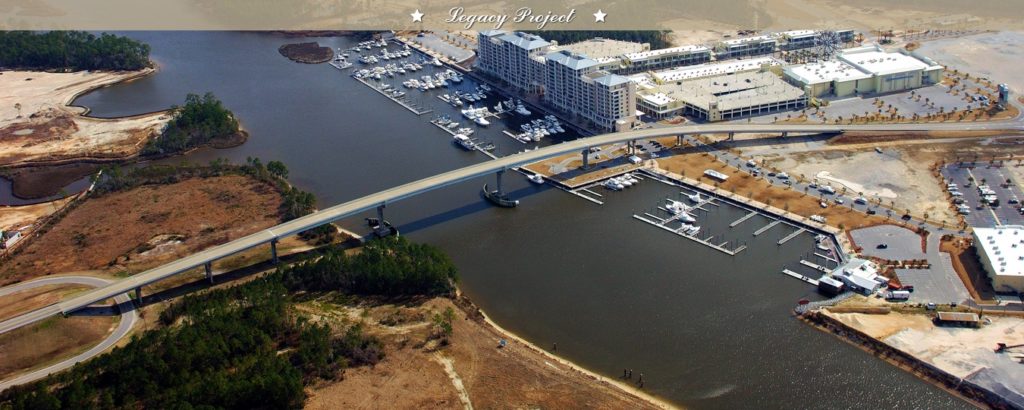
Small government voters and elected officials throughout the nation, but especially here in our ultra-conservative state, are constantly touting smaller government and innovative public-private partnerships as the often untapped solution to most of our fundamental problems. Why invest in big government, taxpayer funded solutions when there are industries who can do the job usually faster, cheaper and more efficiently? We’re in a state of emergency with our nation’s infrastructure — of that there’s no doubt. To remedy this state’s across the nation have begun passing gas tax increases. But not in Alabama. Here, the Alabama Legislature has clung hard to it red-state ideals and avoided tax hikes, instead seeking alternative solutions including finding ways to maximize federal dollars and partner with companies interested in investing in the Yellowhammer State. Such is the case with the Foley Beach Express Bridge to Orange Beach. There, the state brought in American Roads LLC to build and operate a toll bridge as an alternative to Highway 59. The toll is intended to save travelers time and money. Rather than sitting in congested traffic and waiting for over 25 stop lights on the highway, the Foley Beach Express allows drivers to cruise to the beach, all the while bringing in much-needed funds for local infrastructure improvement. After a year of debate of both impractical and costly solutions, such a building a pricey third bridge to help ease congestion, local officials have settled on widening the existing Foley Beach Express bridge with a third lane that will be reversible depending on traffic needs. As reported by Al.Com, among the solutions offered by American Roads is their initiative “Beach Express, GO!”, which included lowering tolls throughout the summer, and even “lift” the tolls during peak congestion times around concerts and widely attended events. These being among the first steps in a comprehensive plan to work with the state and community to provide the safest and most efficient service to those headed to or from the beach this summer and beyond. “After Labor Day, we will start construction for the improvements, including adding a third, reversible lane on the bridge to accommodate two lanes of traffic in one direction, as well as widening the toll plaza and part of the southbound Foley Beach Express by the plaza. Electronic trolling will further help by eliminating the need to stop for toll payment,” Neal Belitsky, chief executive officer of American Roads, told local TV station Fox 10. This solution provides another look at the way that local partnerships are suppose to work. Without threats and bullying and big government solutions but instead a rational and deliberative process — to allow the private sector continue to manage the problem. The new lane will provide all the benefits that another bridge would, and rather than forcing taxpayers statewide to fund a solution, only the people who use the bridge will pay for it via the tolls. Nevertheless, some in government continue to privately advocate for a public, non-tolled, bridge to the coast. Which begs the question? Why? Why in a state with a perennial budget shortfall, do we have any state officials think a statewide taxpayer solution is the way to go? The new lane should be the answer. In fact, it is the answer. The debate should stop here. Alabama is on the forefront of showing the rest of the country that private public partnerships can and do work. Let’s let that be the bottom line.


